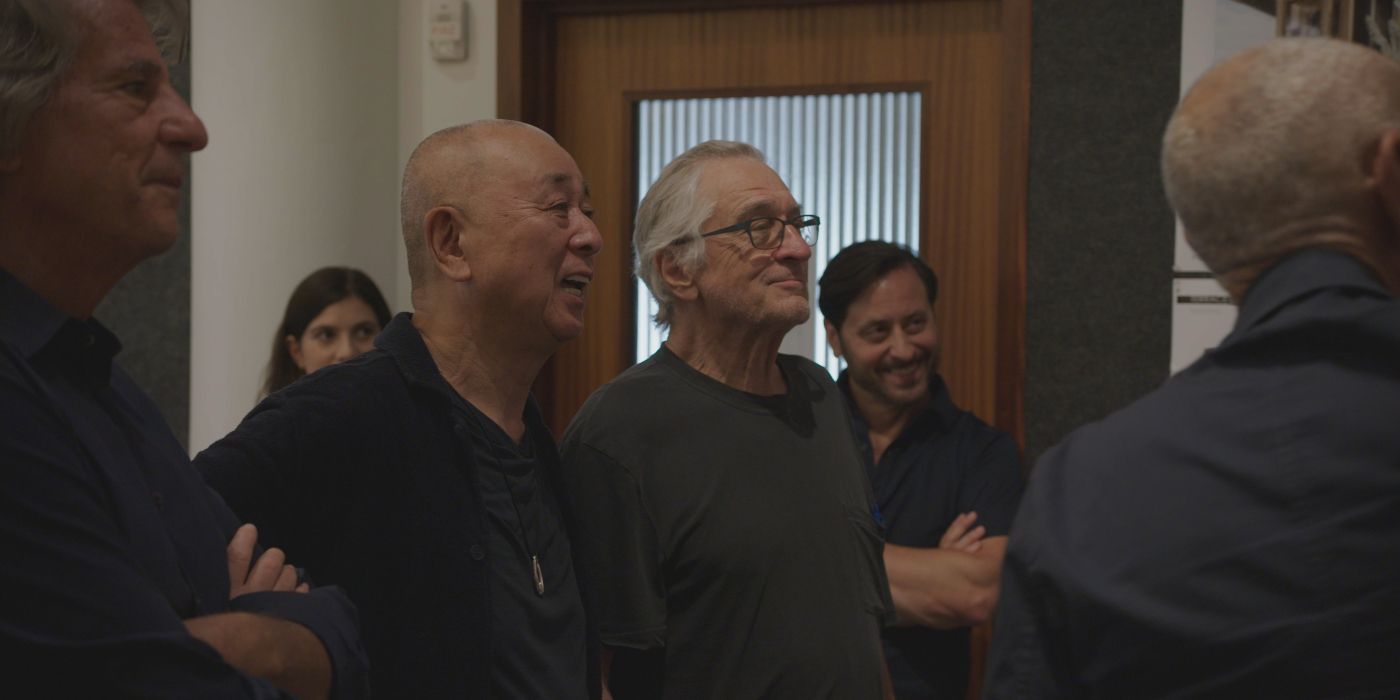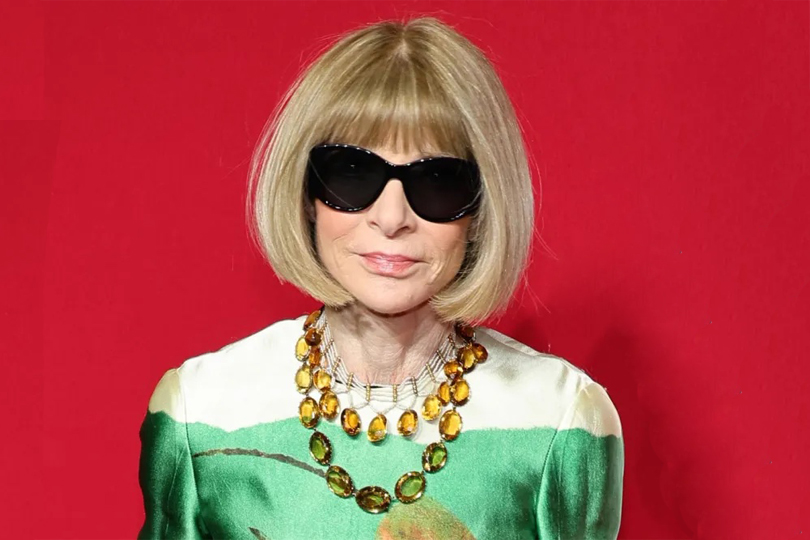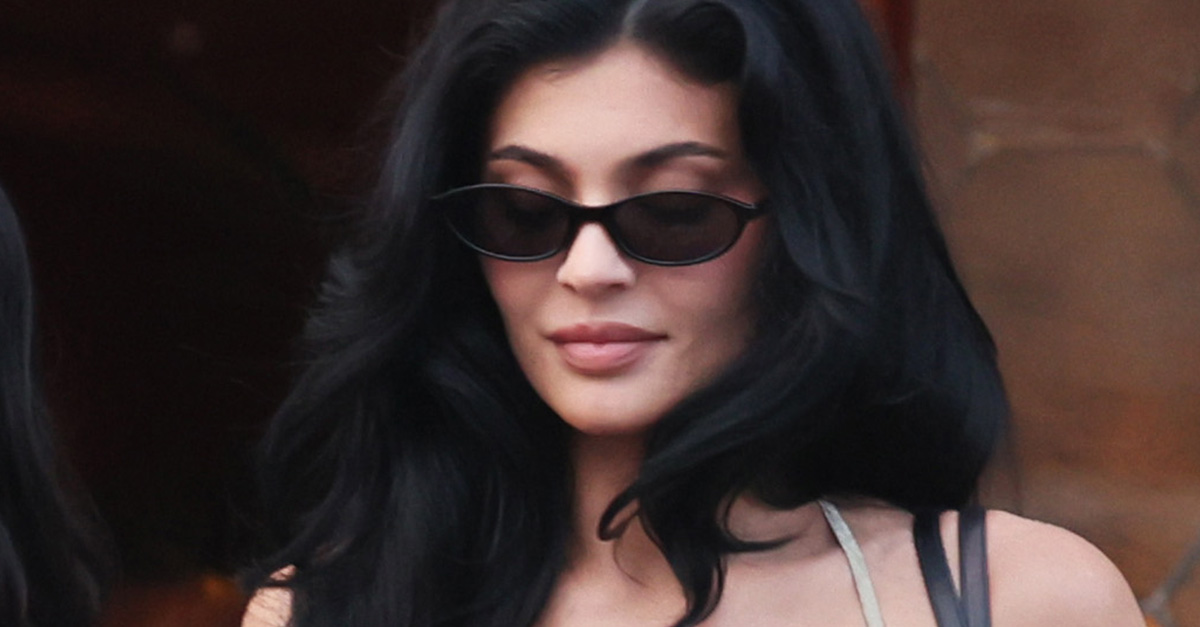Chef Nobuyuki "Nobu" Matsuhisa transformed American palates in the late '80s with his brilliant fusion of Japanese and Peruvian cuisine. His business partnership with Hollywood icon Robert De Niro propelled sushi to the forefront of fine dining, as a cuisine once derided in the West as "raw fish" became a celebrated delicacy and status symbol. Almost 40 years later, Nobu is now a global luxury brand valued at $1.3 billion dollars, with dozens of Michelin-starred restaurants and hotels around the world.
Award-winning documentary filmmaker Matt Tyrnauer (Valentino: The Last Emperor, Citizen Jane: Battle for the City, The Reagans) spent a year chronicling Nobu's business empire and personal life. His unfiltered access paints a complex portrait that vacillates between a hardscrabble upbringing, incredible food, searing emotional retrospectives and the lifestyles of the rich and famous with a liberal sprinkling of cutthroat business tactics. It's a fascinating journey that shows how fame and fortune don't come easily, chronicling the intense dedication of partners who hold quality as a fixed standard that must be upheld in every regard.
Nobu
Nobu spends 11 months of each year traveling between his restaurants and hotels. This is done via private jet, with interludes on his yacht and multiple properties. Tyrnauer doesn't hold back from documenting Nobu's enormous riches in an eye-popping first act; Nobu's mansion in Beverly Hills is particularly impressive, with its vast landscape and stunning amenities. It's almost as if Tyrnauer is flaunting Nobu's wealth — until his significant personal struggles and poverty-stricken youth are revealed.
Nobu and his brother recount life after their father's death in a motorcycle accident in postwar Japan. Their mother was left to fend for their family, and worked tirelessly to provide for her sons. Nobu was a rebellious boy who always got in trouble, but his actions came to a head after an incident that forced Nobu to correct course. This opened the door to the discovery of his two great loves: sushi and Yoko, an intriguing young woman who took a chance on a brash upstart. Yoko eventually became Nobu's wife and a supportive partner that kept his head high after repeated failures.
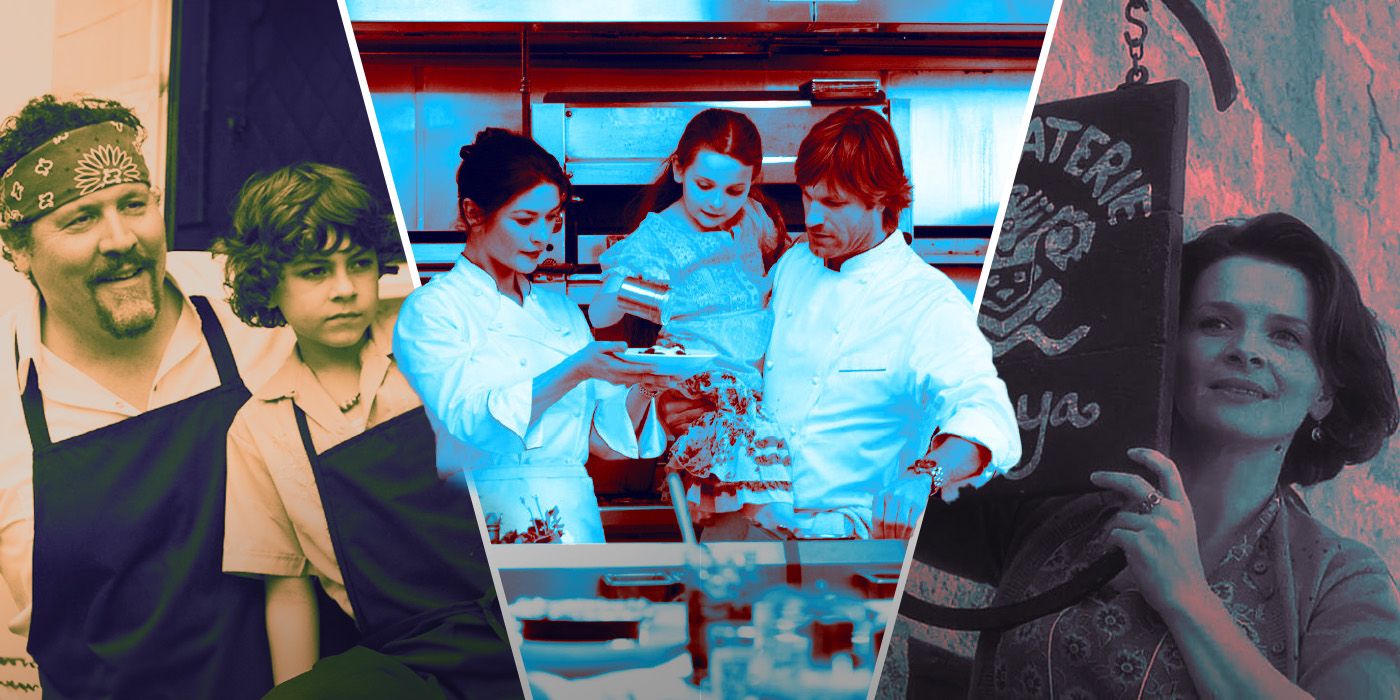
Related
10 Best Movies About Food and Restaurants Like The Bear
So, you want to impress people in the kitchen? Get inspired by these food films, and see what delicious dishes you decide to make, share, and enjoy.
In the 1960s, Japanese youths left the country in droves to pursue economic opportunities abroad. This drive led Nobu and Yoko to Lima, Peru, where his culinary genius blossomed. Nobu explains how ceviche, a Peruvian dish where raw seafood is marinated in lime, citrus, spices, and peppers, changed his groundbreaking reinterpretation of traditional Japanese sushi. Tyrnauer intercuts this segment with interviews from celebrity chefs like Wolfgang Puck and Jean-Georges Vongerichten, who explain how Nobu's innate rebelliousness and creativity led to new dishes that would shake the culinary establishment. But this revolution did not happen overnight, as Nobu and Yoko suffered tragic setbacks in the difficult following years.
Tyrnauer makes a clear point as the film's true focus comes into frame. Nobu did not achieve any kind of success until his 40s; his rags-to-riches story took decades to develop, and had many dark moments. It's stunning when the bright and happy Nobu weeps uncontrollably for the first time, a turn of events that inserts a sense of deep sadness into the narrative as we realize that the confident man we see today was formed in a crucible of despair. Nobu speaks candidly about contemplating suicide, and feeling that he had failed his wife and two young daughters as a provider. You'll have to watch to find out what happened, but it's a devastating reminder of how our fates hang by a thread, and to appreciate the hands that lift us out of darkness. Nobu and Yoko were helped from the clutches of devastation, a major subplot that will have enormous ramifications many years later.
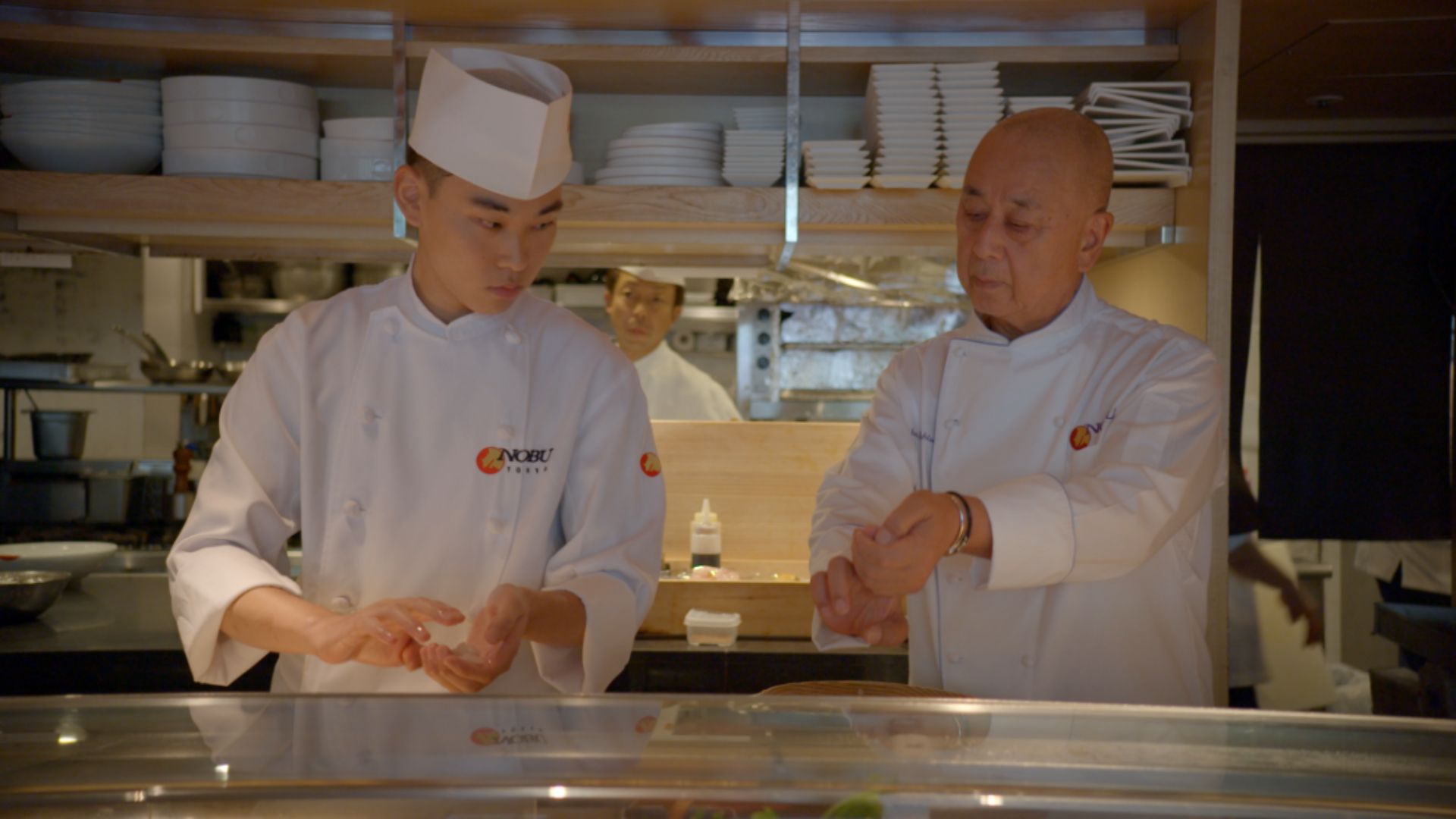
The film then settles into an operational mode. Even in his late seventies, Nobu, always with Yoko at his side, ensures everything that bears his name is worthy. Scenes of restaurant chefs, managers, and staff getting hugs and selfies with the boss are juxtaposed with footage that shows his iron discipline. You feel for the clearly nervous chefs who have to recreate dishes many times under Nobu's watchful gaze. He doesn't tolerate mistakes, even when it's something seemingly trivial, like the spacing of breadcrumbs on a plate or the cutting of chives. Nobu expects his dishes to be served exactly the same everywhere around the world, but he's not a threatening teacher. Nobu's restaurants are staffed by people who've been working for him for years, and all were promoted from within. They are a cadre of elite chefs trained under strict guidance from an uncompromising master.
De Niro plays a huge part in Nobu, and his business acumen is stunning. Nobu didn't have a clue who De Niro was when he visited his burgeoning restaurant in the '80s, but De Niro saw lightning in a bottle and knew Nobu was extraordinary. Their collaboration has resulted in astonishing growth, because both men know their parts well. A riveting scene sees De Niro shredding a multi-million-dollar deal with prospective business partners because he saw no value in their addition — imagine Raging Bull in a conference room with cowering corporate figures. De Niro makes no apologies for his strong-arm tactics: He and Nobu have a unified vision for their brand, and profits will come if they do business right.
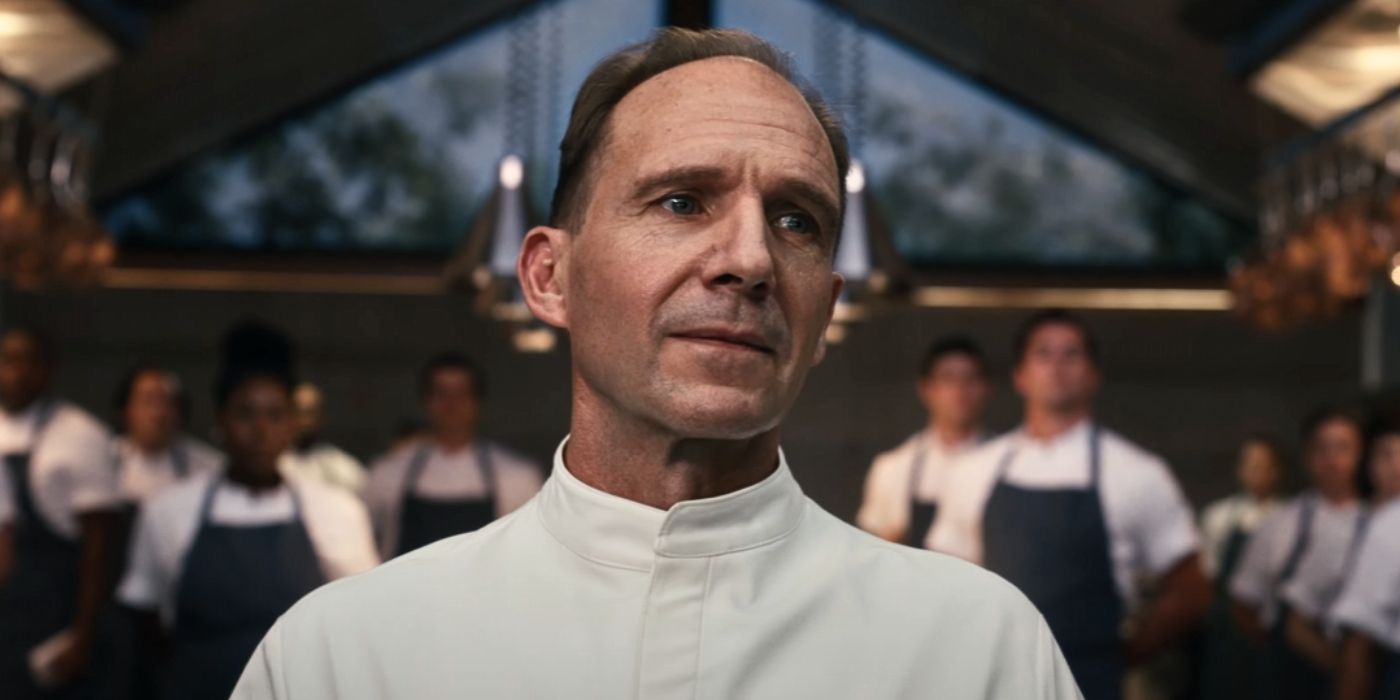
Related
10 Movies About Food Even More Disturbing Than 'The Menu'
These food-related movies served up some shocking scenes, delicious twists, and frightening characters.
Tyrnauer had final cut on the film, and does an admirable, all-encompassing job documenting all things Nobu. He expresses the measure of the chef's greatness, and why Nobu deserves the trappings of opulence. He's earned every bit of it. Where Nobu feels bland is purely stylistic: the documentary has no distinct visual appeal, apart from shots of the scrumptious dishes. It's a somewhat rote approach, one that could have used the spiciness and flavor of Nobu's famed miso black cod, yellowtail jalapeño and crispy rice.

